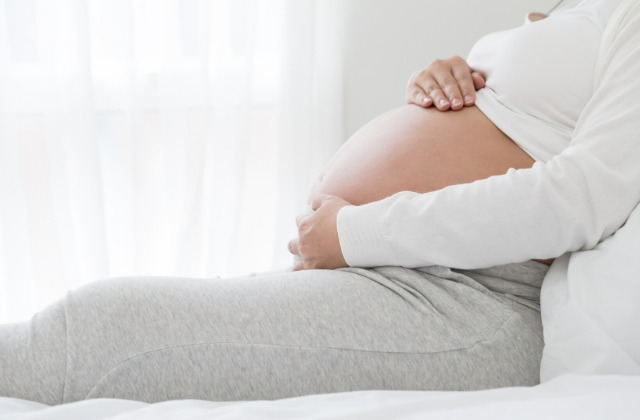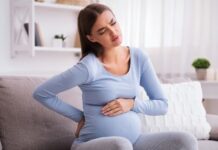Vaginal pain is a common problem in women during pregnancy. If it is frequent it matters to worry and indicates something serious. In most cases, it is not any sign of any serious complication. It can be due to several reasons as the body adapts to the new changes.
In this article:
Causes of Vaginal Pain During Pregnancy
Remedies for Vaginal Pain During Pregnancy
Treatment for Vaginal Pain During Pregnancy
Is Vaginal Pressure During Pregnancy is Totally Normal?
Causes of Vaginal and Pelvic Pressure
Pain During Early Pregnancy Remedies
Pressure Vs Pain
When to Call the Doctor
Vaginal Pain During Pregnancy: Causes, Treatment, and Remedies
Causes of Vaginal Pain During Pregnancy
The following causes pain in the vaginal region –
Blood Flow
During pregnancy, there is usually an increased flow of blood within the uterus which can cause pain in the vaginal area. The area may get tender and swollen even when nudged. Pain can also be due to vaginal varicosity or enlarged blood vessels in the pelvic area in some cases.
Infections
Pain can occur due to fungal infections around the vaginal region. Along with pain other symptoms are vaginal discharge, nausea, diarrhea or backache. Candidiasis is a common infection during pregnancy.
Cervix Dilation
If the pain is stabbing especially in the later stage of pregnancy it can be due to the dilation of the cervix. The cervix dilates a few weeks before labor and that can cause pain along with bleeding.
Fetal Pressure
The growing fetus puts pressure on the pelvic area that stretches the ligaments and muscles leading to pinching pain. This pain may last for a few seconds or minutes and sometimes longer. It may occur in the first trimester when the uterus is enlarging and putting pressure on the bladder and rectum or in the second trimester when the baby is pressing against the pelvic region or in the third trimester as the baby is moving down.
Ectopic Pregnancy
Vaginal pain is one of the symptoms of ectopic pregnancy which is usually difficult to diagnose. The other symptoms of this pregnancy can be abnormal bleeding, sore breasts, dizziness, lower back pain, fainting, shortness of breath and low blood pressure.
Remedies for Vaginal Pain During Pregnancy
Vaginal pain may subside with some simple measures like –
- Lie down on left as it might improve the blood circulation and reduce vaginal pressure.
- When sitting, keep the feet elevated to get some relief from the pressure and pain.
- Warm water baths can help to relax. Stand under the shower and allow the water to fall on the back.
- Lie down with hips elevated.
- Get a pelvic massage by a trained masseuse.
- Do some simple exercises such as yoga and swimming after getting clearance from the doctor. It may improve blood circulation and strengthen the muscles thereby relieving the pain.
- Pelvic exercises such as pelvic rolls and tilts may also help.
- Use support belts that are designed to support the belly, lower back, pelvis, and hips.
Avoid jerky movements and sudden twists at the waist. Do not take pain relief medications without a prescription by a doctor.
Treatment for Vaginal Pain During Pregnancy
Vaginal pain is sure to occur at some stage in every mother, so it is helpful to know how to alleviate vaginal pain during pregnancy. Pain relief medications can provide temporary respite, so it is better to consult the doctor always for proper treatment.
Is Vaginal Pressure During Pregnancy is Totally Normal?
The pain may have an impact on the joints, bones, and muscles. Walking, driving over uneven roads and climbing stairs may aggravate the pain. There may be increased pressure on the vagina as a move towards delivery. The pain and pressure may aggravate as the baby drops into the pelvic region to prepare itself for delivery. Care and attention at home can help to get some relief from the pain.
Causes of Vaginal and Pelvic Pressure
As the baby grows and becomes heavier, it puts increasing pressure on the muscles in the pelvic floor. These muscles offer support to the uterus, small intestine, bladder, and rectum. As the pregnancy progresses, the baby gets all the more snuggly against the organs, hips, and pelvis. Another likely culprit for all that pelvic pressure in the later months of pregnancy is the hormone relaxin. It helps loosen the ligaments as moving closer to childbirth but it can affect the pelvic joints, too. Some women experience pain near the pubic bone and the sensation of shaky legs.
Pain During Early Pregnancy Remedies
If experiencing vaginal or pelvic pressure in the first trimester or early in the second which may be due to cramping sensation in the early weeks of pregnancy may be due to the expanding uterus. Contact the doctor if there is spotting or bleeding. Constipation can also cause feelings of pressure. Drink lots of water and fluids and consume plenty of fiber. Kegel pelvic floor exercises can be done and remain active during pregnancy.
Pressure Vs Pain
Pain is sharp enough to make it difficult while walking, on the other hand, the pressure is similar to the ache experienced during menstrual cramps and is spread to the lower back too.
When to Call the Doctor
Use the prenatal appointment with the doctor to talk about vaginal pain if it is mild. But if the pain is intense and is accompanied by a fever, headache, dizziness, bleeding, painful and frequent urination change in baby movements and swelling of the face, hands, and feet, seek medical help by a doctor. Prompt treatment might help in avoiding any complications.
Conclusion
Vaginal pain during pregnancy is common and not usually be cause for concern and can be a good sign that the body is releasing the right hormones and the uterus is growing as expected. Contact the doctor to avoid any complications.
References
- https://www.ncbi.nlm.nih.gov/pmc/articles/PMC2677128/
- https://www.ncbi.nlm.nih.gov/pubmed/3785964
- https://www.medicalnewstoday.com/articles/322304#when-to-see-a-doctor













